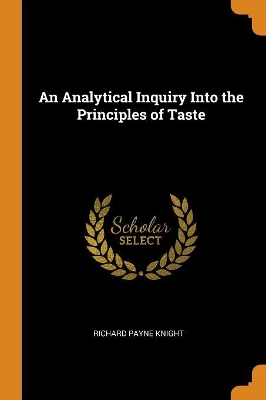Cambridge Library Collection - Art and Architecture
1 total work
Classical scholar, art collector and connoisseur Richard Payne Knight (1751-1824) took a keen interest in aesthetics and was a key figure in the debate on the picturesque. Of independent means, he journeyed across Europe, often in the company of artists. His home, Downton Castle in Herefordshire, set the fashion for crenellations. He sat in Parliament from 1780 to 1806, but beauty interested him more than politics. Following important works on aesthetics by such writers as Edmund Burke and Uvedale Price, Knight published his most successful work in 1805, cementing his reputation as an authority on matters of taste. Here he moves away from the ideas of Price and Burke, instead exploring the role of associations in the expression of aesthetic judgement. Knight's Analytical Essay on the Greek Alphabet (1791) and Inquiry into the Symbolical Language of Ancient Art and Mythology (1818) are also reissued in this series.
